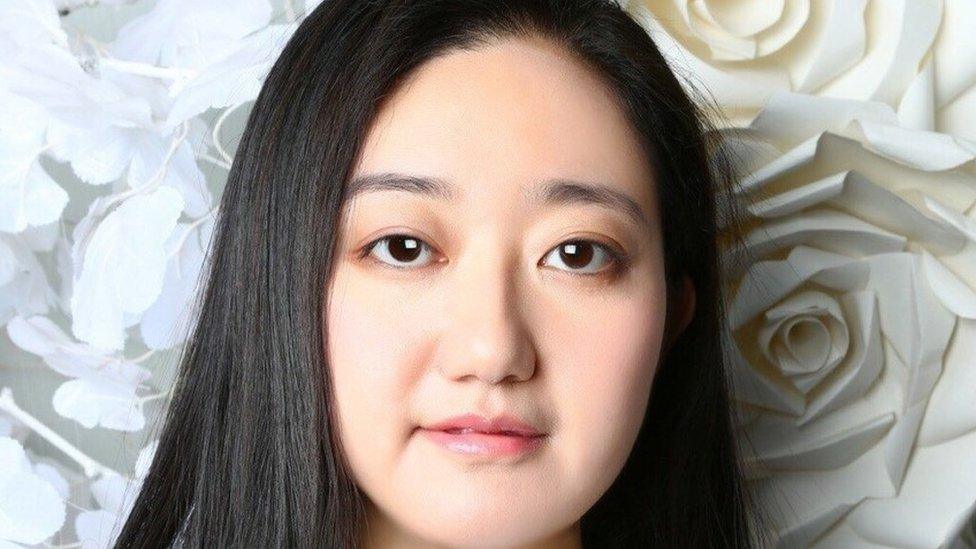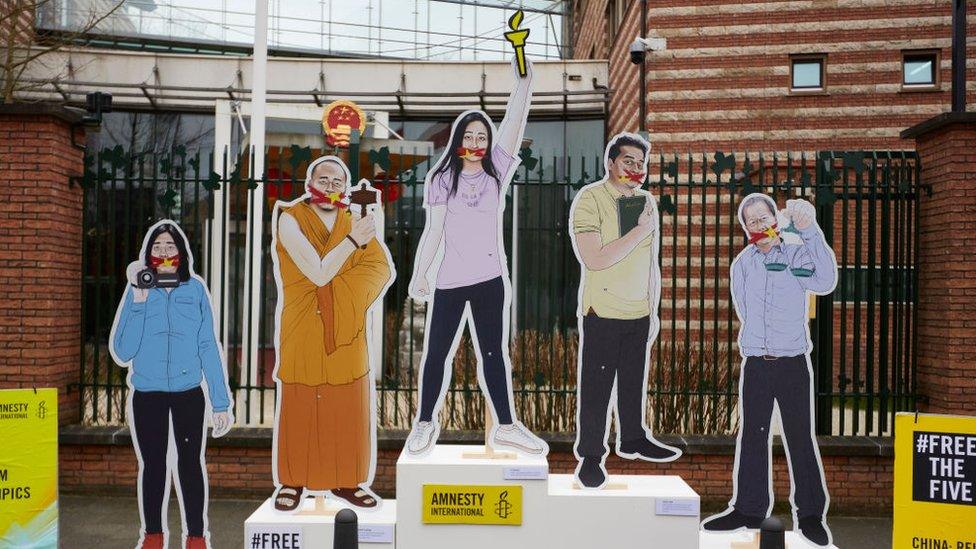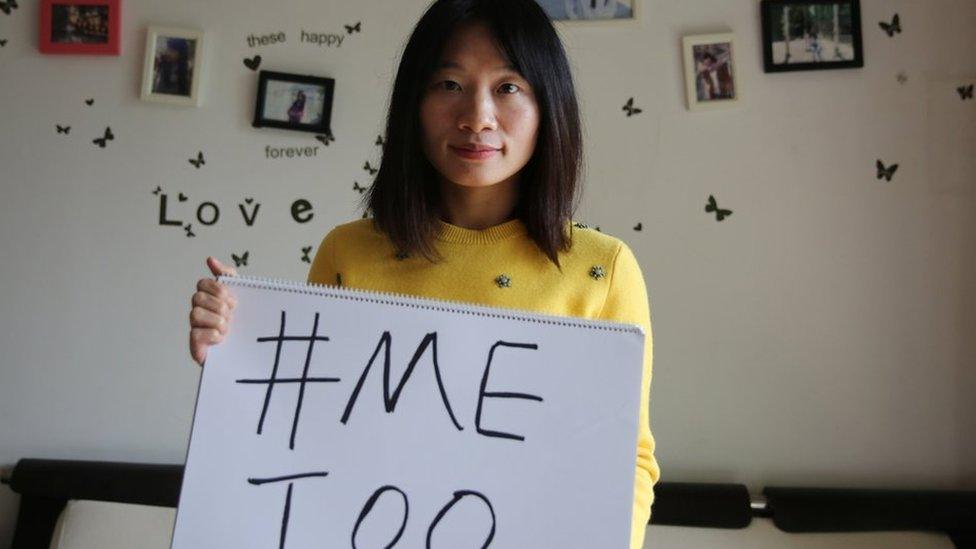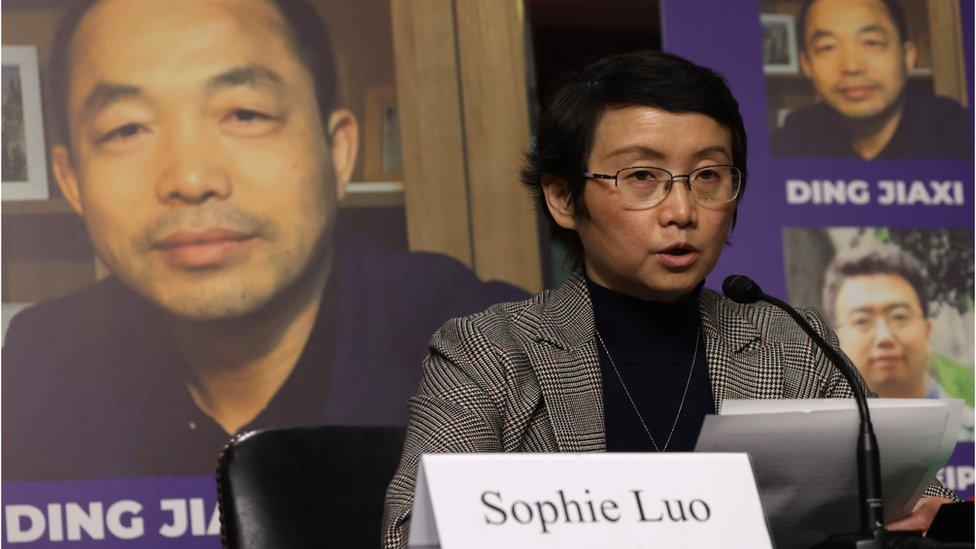China tries activist Li Qiaochu for 'inciting subversion of state power'
- Published

Li Qiaochu has been detained since March 2021
Chinese activist Li Qiaochu has been tried for "inciting subversion of state power" in a case seen as part of China's sprawling crackdown on dissent.
Ms Li's lawyer Li Guobei said she was denied entry to the closed-door trial held in Linyi, Shandong on Tuesday.
The 32-year-old faces a possible jail term of five years or more.
She has been in custody since March 2021, after tweeting about the harsh detention conditions of her partner and fellow activist Xu Zhiyong.
Her trial concluded at 15:00 local time (07:00 GMT) on Tuesday without a verdict, according to a Facebook page, FreeLiqiaochu, which tracks updates on the case.
The lawyer told the BBC that she last met Ms Li at a pre-trial conference on 19 June, where she had maintained a "firm" stance on not pleading guilty.
Ms Li has struggled with hallucinations while under detention, she added.
Ms Li was first summoned by the police in December 2019 and held for a day while she was questioned about Mr Xu's whereabouts.
She was taken into custody again in February 2020, after criticising how the police had treated her. She was then released on bail before being arrested again in March 2021.

A podium protesting the imprisonment of five Chinese activists, including Li Qiaochu (centre), placed at the Chinese embassy in The Hague
Ahead of the trial on Tuesday, the US Congressional-Executive Commission on China called for her "unconditional release", external, noting that Ms Li "reportedly needs urgent medical treatment".
The commission, which has a legislative mandate to monitor human rights and the development of the rule of law in China, also dismissed the "absurd" charges levelled at her for "exposing the torture [Xu] and Ding Jiaxi faced in detention".
Xu and Ding were jailed - for 14 years and 12 years, respectively - in April for subversion.
Both men co-founded the New Citizens' Movement, which campaigns for civil rights and government transparency. They are among the most high-profile dissidents to fall foul of the Chinese authorities.
Ms Li was charged with "inciting subversion" because she "is Xu Zhiyong's partner and deeply influenced by his subversive thoughts", according to a statement on Amnesty International which cited the wording of her indictment. She was also deemed to have "spread subversive thoughts" by helping Mr Xu publish his "subversive articles" online.
"Li's trial highlights the deeply repressive environment, external for anyone who tries to advocate for human rights in China," the rights group said.
Ding's wife Luo Shengchun also called for the state to "stop persecuting Li Qiaochu". In a post on X, formerly known as Twitter, she added that numerous applications by Ms Li's family members for a meeting with her have been rejected by the authorities.
Ms Li was previously employed in Beijing's Tsinghua University, where she researched issues related to women's and workers' rights.
In 2017, she worked with other academics and civil society groups to help evicted migrant workers secure new jobs and accommodation. She also played an active role in China's #MeToo movement by compiling and publishing data on sexual harassment allegations.
Related topics
- Published22 September 2023

- Published10 April 2023
